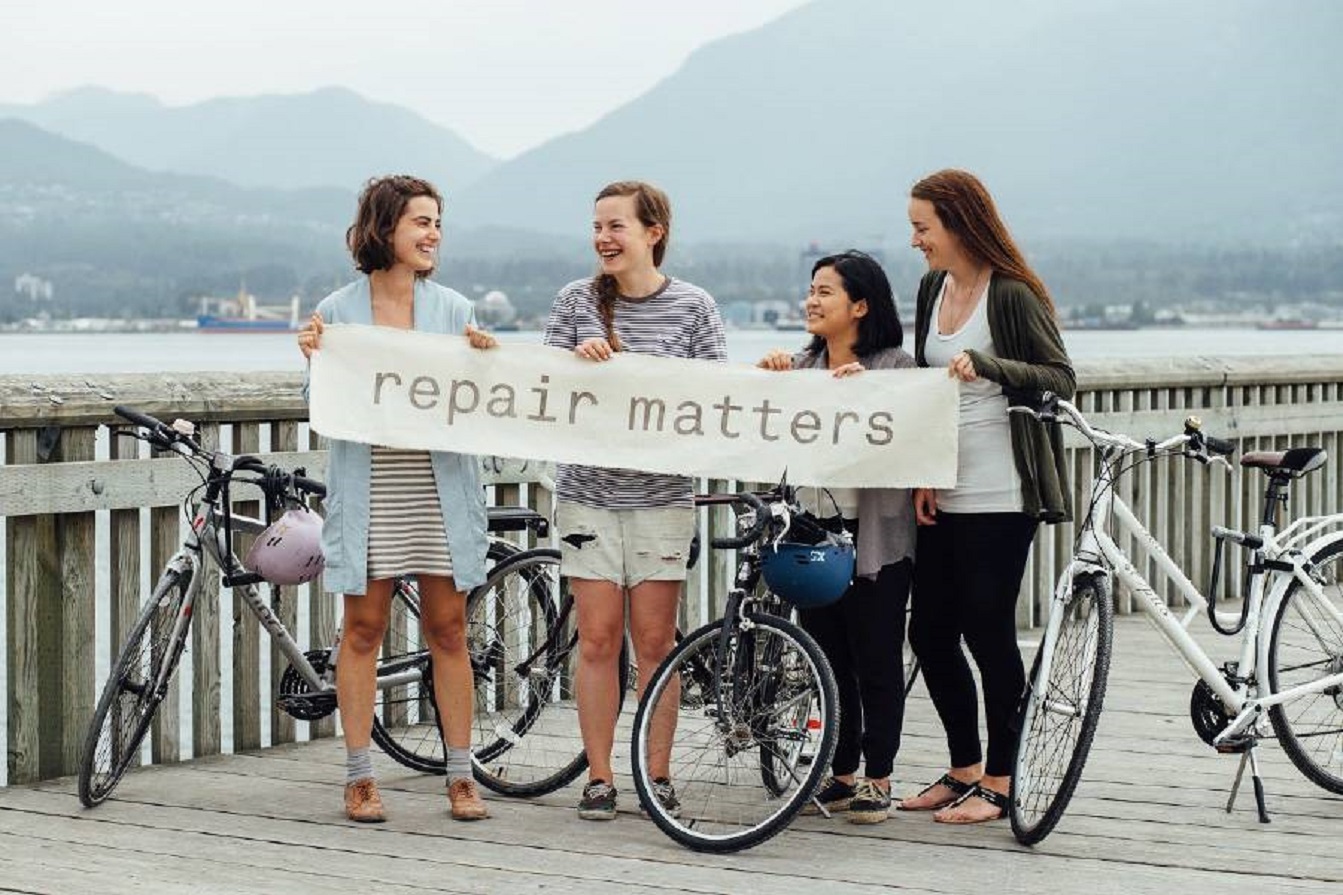News
Green Living: Local repair cafés divert waste from landfills

Posted on October 24, 2016 | Updated August 06, 2019, 9:06am
Emily Carr alumnae Karen Byskov + Jayde Chang team up with SFU grads Jessica Beketa and Shea O’Neil to create Repair Matters, a repair community based in Vancouver.
Article by Lucy Lau, Georgia Straight, October 19, 2016
For many people, a torn pair of jeans or a broken vacuum cleaner is solved by a quick trip to the mall. But imagine the amount of waste we’d save if we simply attempted to fix the items at our disposal.
It’s a modest concept, one that prompted four Emily Carr University of Art + Design and Simon Fraser University grads to establish Repair Matters in 2015. A Vancouver-based iteration of the repair cafés that have popped up across Europe and North America in recent years, Repair Matters conducts semimonthly events that join members of the community in an effort to mend faulty appliances, damaged clothing, and nonfunctioning household wares, among other objects.
“I love seeing things that may have gone to the landfill being fixed and someone getting a second life out of it, even if it’s for a few months,” Shea O’Neil, cofounder of Repair Matters, tells the Straight by phone.
Along with friends Jessica Beketa, Karen Byskov, and Jayde Chang, O’Neil works with a group of handy volunteers who serve as “fixers” at each café. The events typically take place at community centres, farmers markets, and neighbourhood houses, where members of the public are permitted to bring any broken objects they’re able to carry. The fixers and attendees then pool their knowledge and abilities to troubleshoot issues and propose courses of action—all free of charge.
O’Neil notes that Repair Matters’ volunteers vary widely in age and educational backgrounds. Many of them aren’t professional repair people but rather have acquired a special skill set through previous gigs or as a pastime and appreciate the opportunity to work with others.
“Even if an item doesn’t get fixed in the end, you can tell that people are excited about working on something with other people,” explains O’Neil. “And a lot of the time, it’s a couple of strangers who just met and they’re working together to try to fix an old toaster.”
This unity is one feel-good byproduct of the cafés—not to mention the cash that Vancouverites inevitably save from not having to replace any gadget that goes slightly haywire. However, for Jocelynn Rodrigues, founder of the Vancouver Fix-It Collective, empowering individuals from all walks of life is just as important as the sense of connectivity.
“It’s kind of moving away from the experts-teaching-others model, which has a bit of a colonial history where someone holds the power or expertise,” she relays by phone. “So we’re really trying to break away from that by encouraging people to fix and take things apart themselves.”
Like Repair Matters, Rodrigues makes an effort to include a diverse range of voices at Fix-It events. By tapping into a cooperative of experiences, talent, and savvy, the two repair teams have restored everything from clothing, food processors, and clocks to sewing machines, hairstyling tools, and even popcorn makers.
This Saturday (October 22), Repair Matters is organizing a national repair café at the Dunbar Community Centre (4747 Dunbar Street), where Vancouverites are encouraged to bring broken items. The event will take place at the same time as two other cafés in Calgary and Toronto, so if no one has the answer to your issue on-site, you may turn to someone from across Canada in a live stream.
The Vancouver Fix-It Collective, meanwhile, will be tinkering with;and at times repurposing—objects at Gordon Neighbourhood House (1019 Broughton Street) this Sunday (October 23). The gathering is the first repair café conducted by the group since a summer hiatus. Bearers of damaged articles and repair people of all levels are welcome.
“If anything, it’s a nice excuse to just hang out with people in the community and get to know your neighbours,” says Rodrigues.
